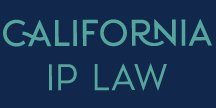THE STRIKE MIGHT BE OVER BUT THE FUTURE OF AI MAY STILL CUT AGAINST CREATORS
September 27, 2023
It looks like the Writers Guild strike will come to an end today. One of the sticking points was AI and writers’ ability to control the use of works in AI. While I’m glad to hear that writers, and all those that depended on them for work, can get back to work, I don’t think a resolution to the AI issue can be so quickly decided.
There are lawsuits pending that will decide whether creators, like authors, can control their works in an AI context. Andersen v. Stability AI, for example, is a putative class action brought by artists whose images were used to train AI systems (i.e. Stable Diffusion and Midjourney). See Andersen et al. v. Stability AI, Inc. et al., Case No. 23-cv-00201 (N.D. Cal.). The artists named two companies that have and market AI image systems and a company that provided training materials for the AI systems. The artists claim, among other things, that training the software system requires copies of their artwork and that any output from Stable Diffusion is, therefore, a derivative that infringes their copyrights. Getty Images filed a similar action against Stability AI, titled Getty Images v. Stability AI, Inc., Case No. 23-cv-000135 (D. Del.). The outcome of these cases, and cases like this, will decide whether creators can control their works and monetize or prevent the use of the works in AI systems. If the creators win, it will mean the courts have determined that using protected works to train an AI system infringe copyrights. If the AI companies win, however, it will mean that training their systems does not infringe copyrights. In that case, AI systems can be trained on any materials that are accessible and it does not matter what rights creators maintain or give up in something like their employment contracts.
If it turns out that AI platforms can use copyrighted material to educate AI systems, then the copyright system will strongly disfavor creators because copyrights do not allow creators to benefit from the same AI systems. According to the Copyright Office’s published guidance on copyright registrations for works containing AI generated content, the Office will only issue registrations over works containing AI content in limited circumstances. And even if the registrations issue, it will be of limited value. The Guidance gives the following examples:“[A] human may select or arrange AI-generated material in a sufficiently creative way that ‘the resulting work’ as a whole constitutes an original work of authorship.”Or “[A]n artist may modify material originally generated by AI technology to such a degree that the modifications meet the standard for copyright protection.”In both these cases, however, copyright protection will only extend to “human-authored aspects of the work, which are ‘independent of’ and do ‘not affect’ the copyright status of the AI-generated material itself.” While it isn’t a clear definition of what will be protected, it is clear that it won’t be the work in its entirety.
The Courts will get the ultimate chance to decide this issue too. The US Copyright Office recently rejected a copyright application because the creator used an AI platform, Midjourney, to create the image. Jason Allen tried to get a copyright on his image Theatre D’opera Spatial. According to Allen he used hundreds of text prompts to arrive at the image and then continued to edit the image in Adobe Photoshop to remove flaws and create new content. Despite his involvement in creating and editing the work, the US Copyright Office refused to issue a registration to the work unless Allen disclaimed any parts that are created with AI. Allen refused, no doubt with the intent to challenge the Copyright Office’s position in Court.“Disclaimer: Attorney advertisement. This post is not intended to be legal advice and is simply intended to be informative.

